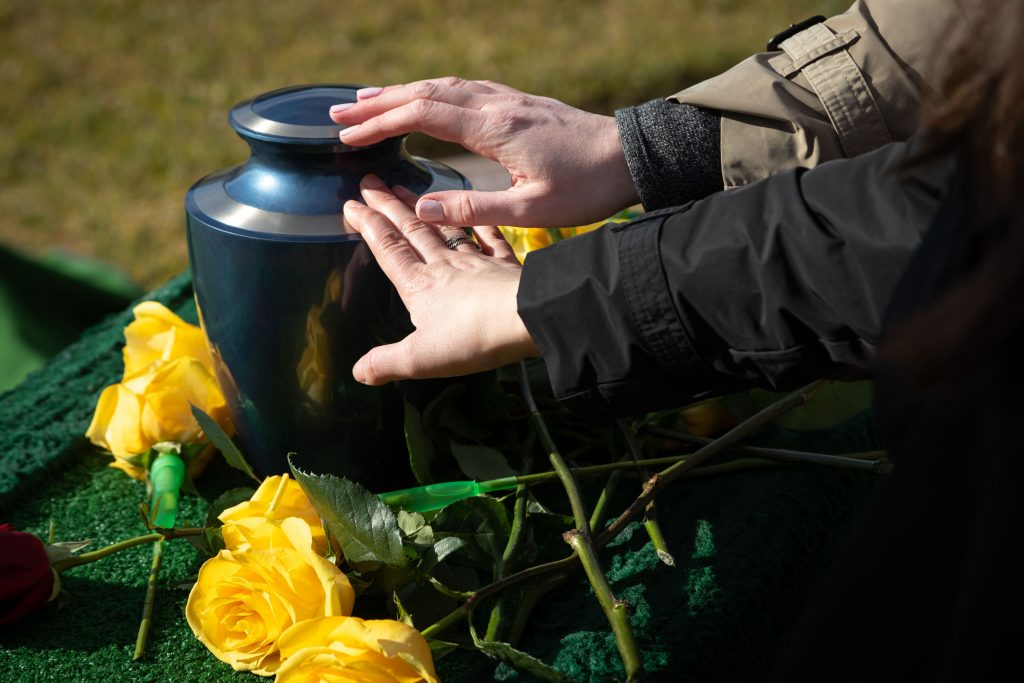
When someone close to you passes away, it’s quite normal to go into shock and then into a full planning mode
To help you during this challenging & emotional time, the Victoria Cross Funeral Team have prepared a checklist, using their many years of experience, to cover what they feel would help someone going through this stage in their life.
There are two common scenarios that families are faced with. The death of a loved one at the hospital/aged care facility, or at home. If the death was at the hospital or nursing home, staff will as part of their process arrange for the doctor to issue a Medical Certificate of Cause of Death.
If the death happened at home, and was expected, it is important you call your General Practitioner, who will then issue you with a Medical Certificate of Cause of Death . Depending on the circumstances, the Coroner may be requested to carry out a post-mortem to determine and report on the cause of death.
Organ donation is a lifesaving and life-transforming medical process. Almost everyone can help others through organ and tissue donation (DonateLife.gov.au).
If it is known that the deceased is an organ or tissue donor, the next of kin will be required to provide their consent for the organ or tissue donation to proceed. On the other hand, if it is unknown whether the deceased is an organ or tissue donor, the next of kin will need to decide whether, to donate the deceased’s organs or tissues.
How to check either way? To check on the status of the deceased’s organ or tissue donation status, you can contact the hospital to look up the Australian Organ Donor Register. If consent has already been provided, the deceased will be taken to hospital immediately, so that the organ or tissue donation process can be carried out.
Before taking any further steps, it will be particularly important to understand if the deceased had made any existing funeral arrangements for their own funeral. This will often be in the form of paying for the funeral ahead of time, or even organising the entire service and celebration.
If the deceased has a pre-paid funeral, it will be important to contact the funeral director that this was organised with. It is by law that pre-paid funerals are organised through funeral directors via a third-party funeral planning service. Your pre-paid funeral funds are held independently of the funeral director, in a capital guaranteed investment. Victoria Cross Funerals has partnered up with Funeral Planning Management. Funeral Plan Management has assisted over 170,000 Australians to fund and pay for their funerals since 1984. A funeral plan kit should be found in the home, or with the deceased’s solicitor or executor of the will.
If you are still not sure, you may find that the deceased has organised a funeral bond, (this is savings that have been put aside to assist with funeral costs). A funeral bond may also nominate a preferred funeral director. It is important to check this.
Check to see if the deceased had any insurance (such as funeral insurance, life, accident, private health, or sickness insurance). If they did, now is the time to reach out to the respective insurance provider or financial planner, to find out if the deceased was entitled to a payout.

A funeral director is no different to any other professional person that you may need to call on for a specialised service, such as a doctor, solicitor, or accountant. You should carefully consider their experience, facilities, and ability to service your needs, e.g. burial, cremation, specific traditional requirements.
If the deceased had a preferred or nominated funeral director, now is the time to contact them to organise to collect the body from the hospital/aged-care facility/home and to arrange transport to the mortuary.
With no preferred funeral director selected, you will need to research and locate a funeral director that will look after your loved one with care, compassion, respect and treat their body with dignity.
A funeral service is an opportunity to say goodbye – we need to do this to grieve and be with people to give and receive support. A well-planned service with Victoria Cross Funerals helps this grieving process by providing a caring environment and an important opportunity to say goodbye.
At this stage, it will be necessary to consider, that several important decisions need to be made before you meet with the funeral director. For example, you will need to understand the type of funeral (for example, cremation, burial), the budget and how the funeral will be paid for and finally, whether you would like a funeral celebrant to assist you on the day. These are only a small number of decisions. There are many more decisions that will need to be made. A great funeral director will be able to personally guide you through each of the options, to ensure that the deceased is handled with care, respect and dignity.

Determining who is going to pay for the funeral is important. You will need to identify where the source of funds will come from to help pay for the funeral, and most importantly, it will be necessary to think about a budget guide.
Funerals can vary in price, and it makes sense that if you are working to a budget, that you speak to your chosen funeral director so that they can make it work for you.
As mentioned earlier, there a are number of ways in which you can pay for the funeral.
It is important to plan some time to reach out and notify organisations and companies that the deceased was associated with. This will involve you letting them know that they have passed away, to make sure subscriptions are cancelled and any postal mail or emails do not continue to be delivered. Some organisations and companies may need this in writing along with a certified copy of the death certificate.
To help you do this, we have collated a the list of organisations and service providers, along with links of who you will need to get in contact with after the funeral. and how to do this:
A sample letter from the NSW government department, shows what you can write in the letter to notify any of the above or any government agency.
Department of human services (DHS), you will need to complete the Advice of Death Form (SA116A)
Australian Taxation Office (ATO), by completing the online form or by mail
ASIC
Department of Veterans’ Affairs, by clicking here for the details.
When someone close to you passes away, it’s quite normal to go into shock and then into a full planning mode. The 7 key things you should focus on when this happens, includes:
Contact the Victoria Cross Funeral Team, by visiting us today.
You can contact us on phone number or send us a message through form below
02 9188 7708
Leave a Reply